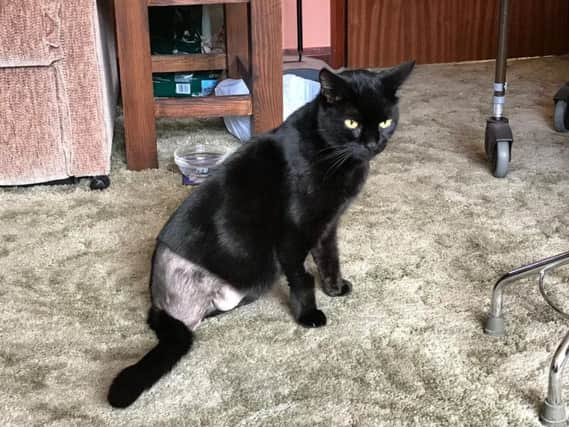Calls for air gun controls after 82 animals shot across Yorkshire in just one year


The animal charity is calling for the licensing of air guns as new figures revealed 82 animals across Yorkshire and the Humber area were shot in 2018, with cats and birds bearing the brunt of the cruel attacks.
South Yorkshire was the fifth highest county in England for recording the most incidents of animals being shot. There were 28 reports during 2018.
Advertisement
Hide AdAdvertisement
Hide AdWest Yorkshire had 27 reports of animals being shot and the East Riding had 15.
There were also 15 incidents in Lincolnshire.
North Yorkshire's figures are not available
As well as mandatory licencing, the RSPCA is calling for a range of measures to tackle the problem of air guns.
Dermot Murphy, RSPCA Chief Inspectorate Officer said: “During last year alone, we received 767 reports of attacks where air guns were used on animals across England and Wales.
"Animals are suffering horrendous injuries and often dying as a result of airgun attacks and these weapons are also potentially extremely dangerous for people.
Advertisement
Hide AdAdvertisement
Hide Ad“Every one of the 258 pet cats and 73 dogs deliberately killed or maimed last year by people using air guns represents a devastated family. And the cruelty continues, with large numbers of wild mammals and birds, including foxes, squirrels, swans, gulls and pigeons targeted as well.
“We believe air gun misuse is happening on a large scale and what we see at the RSPCA could be the tip of the iceberg. We believe that stricter controls are long overdue. Mandatory licensing would be an effective start, but we also need improved enforcement of airgun legislation as well as better, more targeted education and explanation of the law for those buying one."
Nearly half of vets who replied to a British Veterinary Association survey in 2016 said they had treated cats which had been victims of airgun crime and nearly half those incidents had proved fatal.
A Government review into the use of airguns after the death of a young boy concluded 18 months ago but has yet to report its conclusions and recommendations. A significant proportion of the 50,000 public responses to the government’s air weapons review were about the use of these weapons against animals such as cats.
Advertisement
Hide AdAdvertisement
Hide AdMr Murphy said: “We are disappointed that 18 months after it concluded the Government have still yet to say how they will improve the management and use of airguns despite evidence given to them on the suffering caused to animals through their misuse.
"Animals continue to be maimed and killed every year so the RSPCA is calling on the Government to bring in tighter restrictions such as licensing, which we know in Scotland worked, resulting in a 75 per cent drop in animal related complaints in its first year.”
A spokesman for the British Association for Shooting and Conservation (BASC) said it condemns all animal welfare offences but said introducing a mandatory license for air weapns would place an "unreasonable burden" on police.
He said: "There are a total of 36 laws that apply to air weapons, it is essential that these laws are fully enforced before reaching for further restrictions in order to tackle crime.
Advertisement
Hide AdAdvertisement
Hide Ad"Introducing mandatory licensing for air weapons, as suggested by the RSPCA, would place an unreasonable burden on the police, and it has already been demonstrated in Scotland that only a minority of guns are licensed. Those who commit animal welfare offences are unlikely to submit to licensing requirements, so further regulation disproportionately affects law abiding air weapons owners.
"Education has been shown to be a significant factor in reducing crime levels, and BASC centres itself around ensuring the safe and lawful use of air weapons is learnt from a young age."
The Home Office has been contacted for a comment.
